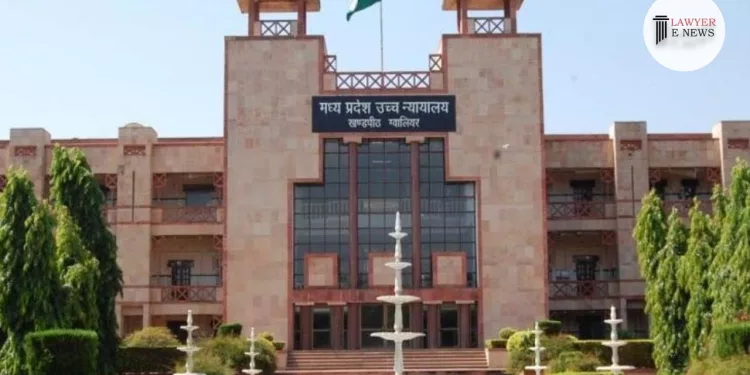Insolvency Proceedings Do Not Extinguish Criminal Liability Under Section 138 NI Act: MP High Court Denies Relief from Deposit Condition for Sentence Suspension

Justice Gurpal Singh Ahluwalia upholds Rs. 13,73,890/- deposit condition, rejecting the argument of interim moratorium under Section 96 IBC.
In a significant judgment, the High Court of Madhya Pradesh has denied an application under Section 482 of the CrPC, seeking to quash the condition requiring the deposit of Rs. 13,73,890/- for the suspension of the sentence during the pendency of an appeal. The court emphasized that insolvency proceedings under the Insolvency and Bankruptcy Code (IBC) do not extend to criminal proceedings under Section 138 of the Negotiable Instruments Act (NI Act).
Insolvency Proceedings and Criminal Liability: Justice Gurpal Singh Ahluwalia observed that the interim moratorium under Section 96 of the IBC does not apply to criminal proceedings under Section 138 of the NI Act. The court referred to the Supreme Court’s decision in Ajay Kumar Radheyshyam Goenka v. Tourism Finance Corporation of India Limited, stating, “The nature of proceedings under the two Acts is quite different and would not intercede each other. Criminal proceedings under Section 138 of the NI Act are penal in character and not merely compensatory.”
Application of Judicial Precedents: The applicant’s counsel relied on the Supreme Court’s ruling in P. Mohanraj v. Shah Brothers Ispat Private Limited to argue that the interim moratorium should prevent the enforcement of the deposit condition. However, Justice Ahluwalia clarified that this judgment does not exempt individuals from personal liability under Section 138 of the NI Act. “Merely because of the initiation of proceedings under the IBC, the signatory of the cheque cannot escape from his liability,” the court stated.
The court extensively discussed the principles of evaluating the impact of insolvency proceedings on criminal liability. It reiterated that the penal nature of Section 138 NI Act proceedings serves to uphold the integrity of financial transactions and does not merely seek compensation. “Proceedings under Section 138 are not recovery proceedings. They are penal in character, aiming to punish the default in honoring a negotiable instrument,” the judgment emphasized.
Justice Ahluwalia noted, “The interim moratorium under the IBC does not extend to criminal proceedings, as these are penal in nature and distinct from civil recovery proceedings.” He further remarked, “The punitive element in Section 138 of the NI Act is essential to enforce the credibility of financial transactions and trade.”
The High Court’s decision underscores the judiciary’s stance that insolvency proceedings under the IBC do not provide immunity from criminal liability under the NI Act. By upholding the condition to deposit Rs. 13,73,890/- for the suspension of the sentence, the judgment reinforces the principle that criminal proceedings serve a distinct and essential role in maintaining the integrity of financial transactions. This ruling is expected to have a significant impact on similar cases, clarifying the boundaries between insolvency proceedings and criminal liability.
Date of Decision: 21st May 2024
Anurodh Mittal vs. Rehat Trading Company & State of Madhya Pradesh






